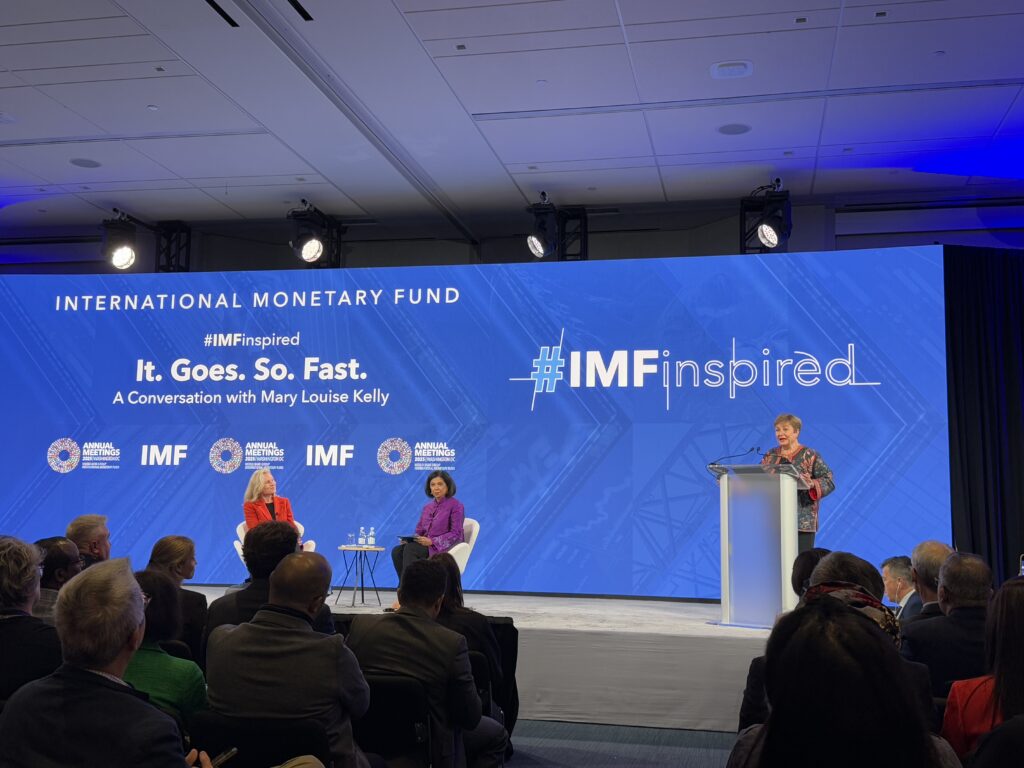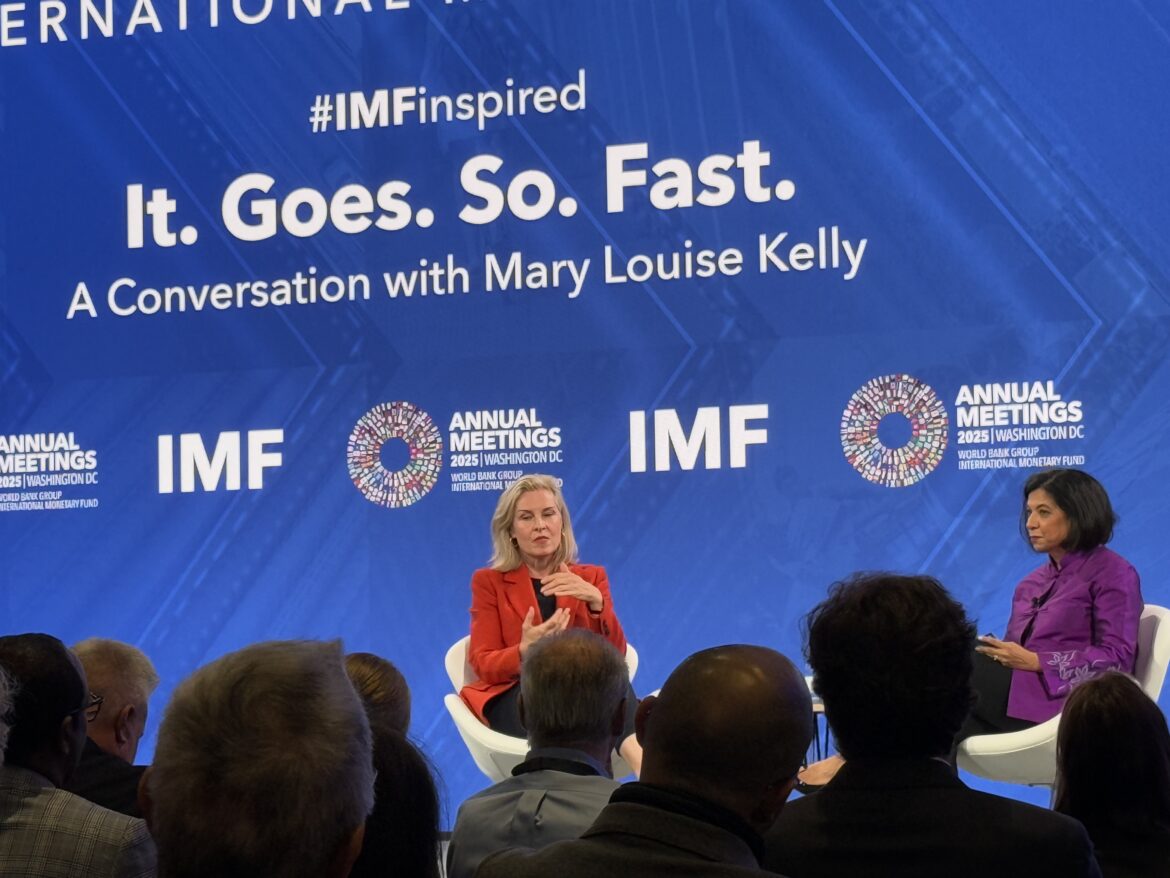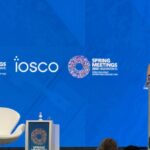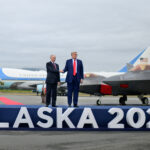Marie Louise Kelly, veteran radio journalist and National Security Correspondent for National Public Radio (NPR), shared insights from her career and personal journey during a conversation with Director of Corporate Services and Facilities at the International Monetary Fund (IMF), Sabina Bhatia, on October 13, 2025, at the Annual Meetings of the World Bank and IMF in Washington, D.C.
As host of NPR’s “All Things Considered,” Louise Kelly has reported from North Korea, Russia, Ukraine, Afghanistan, Israel, Iran, and beyond. Her writing has appeared in The New York Times, The Washington Post, and The Wall Street Journal, among others. Her 2023 memoir, It. Goes. So. Fast., became an instant New York Times bestseller.
In her opening remarks, IMF Managing Director, Kristalina Georgieva highlighted Kelly’s two novels and her prolific career, noting that while Louise Kelly has brought stories to life from distant lands, her recent work draws deeply from home.
Answering questions from Bhatia, who hosts IMF Inspired, Kelly reflected on balancing journalism and motherhood, recalling times she missed her sons’ soccer games for work and a defining moment in Baghdad when she had to choose between a major assignment and her son’s health.

During the 45-minute discussion, Louise Kelly emphasized the need for on-the-ground reporting and the challenges of sustaining local journalism. She also opened up about her hearing loss and how she adapted professionally. Looking ahead, she said she plans to write another spy novel centered on a protagonist with hearing loss.
Reflecting on her memoir, Louise Kelly recounted a harrowing helicopter incident in Baghdad, describing the experience of covering the Pentagon while juggling family life.
She shared, “And my phone rang, and it was the school nurse here calling to tell me that my four-year-old is sick. And how fast can I get there?… He’s struggling to breathe. We need to get him to a hospital now…” She recalled losing signal midair, clad in body armor, looking down over Baghdad, uncertain if her son was breathing.
“That was the moment,” Louise Kelly said, that led her to write her first novel and step away from NPR. “I did take the leap, and I stayed away from journalism for about six years, wrote a couple of novels and was around…”
Louise Kelly also discussed the competing demands of career and parenthood. She shared an anecdote about a rival reporter who later confided that she had cried after seeing Kelly as a stay-at-home mother. “I just dropped my baby at daycare where a stranger was going to take her to the park, and you were off to the park with your son. You looked so happy,” the reporter had told her.
Louise Kelly reflected on how choices, professional or personal, shape one’s life. She recalled declining an interview with the head of Russian intelligence to join her family on safari, saying, “I ended up turning down the head of Russian intelligence story… so I could be on Safari. I’m glad I did, and it was the right choice for my family.”
Speaking about field reporting, Louise Kelly underscored the importance of journalists being physically present in conflict zones to provide firsthand, nuanced perspectives. Drawing from her experiences in North Korea and Iran, she described the restrictions she faced and the value of seeing events unfold directly.
On being a woman journalist, Louise Kelly said her gender often worked to her advantage, helping her access different viewpoints and build trust. She shared stories from Afghanistan, Pakistan, Saudi Arabia, and Iran, where being a woman opened unique doors. She stressed the need to tell stories that touch families and communities, beyond policy and politics.
Among those stories, Louise Kelly recalled meeting Ukrainian leader Hanna Hopko, whose emotional account of balancing family and national duty left a lasting impression. Kelly emphasized that such personal connections enhance empathy and depth in storytelling.
Discussing her hearing loss, Louise Kelly described learning to use hearing aids and advocating for accommodations. She also cited examples from the recent US-Russia Alaska Summit where she had difficulties listening clearly to conversations between President Donald Trump and Russian President Vladimir Putin.
She said Trump and Putin walked out together. Putin began speaking in Russian, while Trump spoke in English. Each journalist seat had a small headset for translation. On the right side of the room, where the Americans were seated, Putin’s remarks were being simultaneously interpreted into English. But Louise Kelly said she couldn’t even tell if she had tuned in to the right channel — was this the English feed or the Russian one?
“I’m anchoring this from inside the room, trying to tell people across America what they are saying” she said recalling challenges she faced there. “It means I’d have to do my job in a different way sometimes than my co-anchors do.”
When asked what advice she had for aspiring journalists, Louise Kelly urged them to build supportive teams and seek help when needed. She emphasized learning from setbacks, reassessing priorities, and embracing the unexpected paths journalism can take.
Looking to the future, Louise Kelly said her “act three” includes writing another spy novel and balancing daily news demands with long-term creative projects. She reflected on the enduring power of storytelling to unite people in a divided world and her hope to continue finding meaning through her craft.






